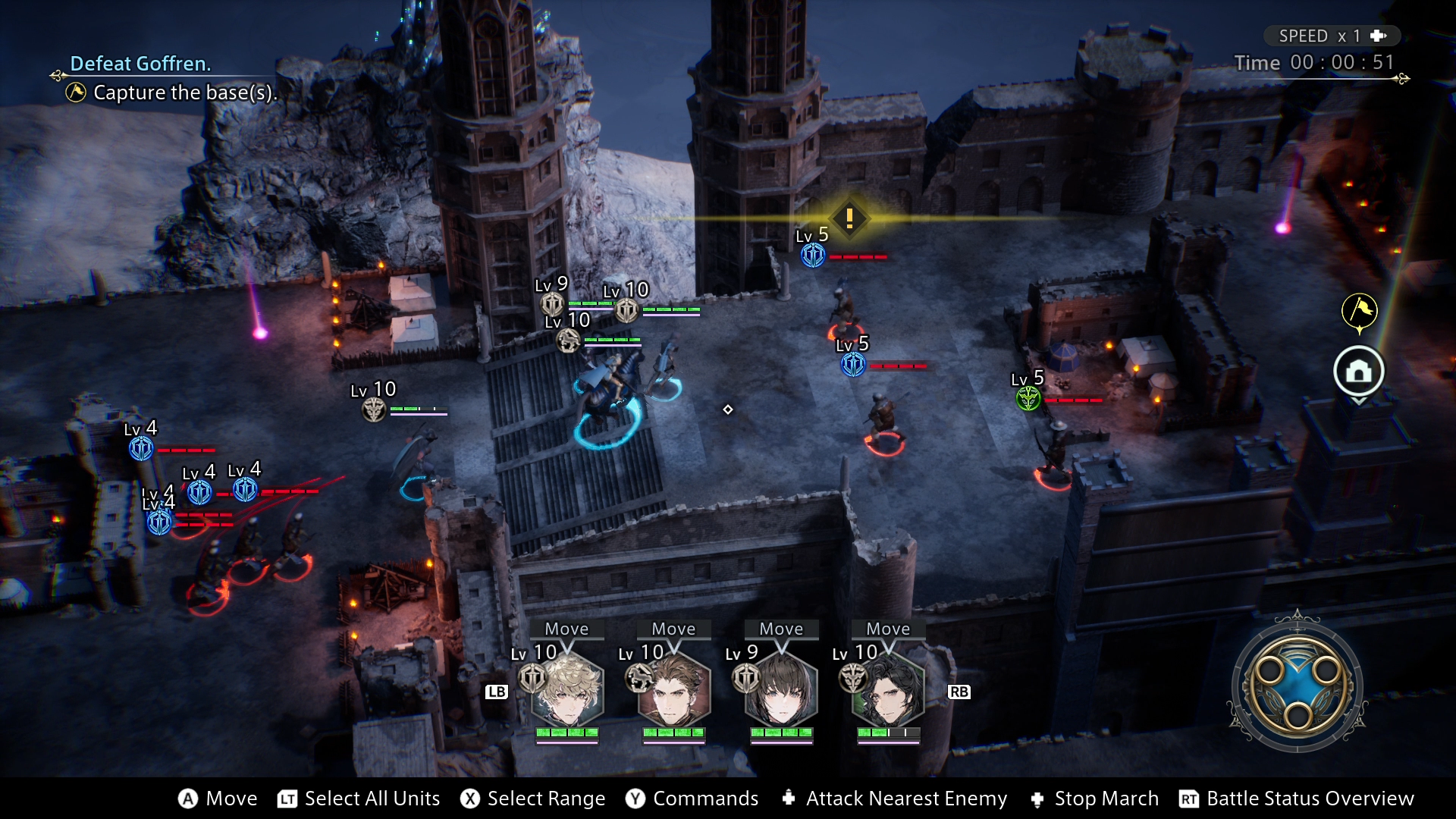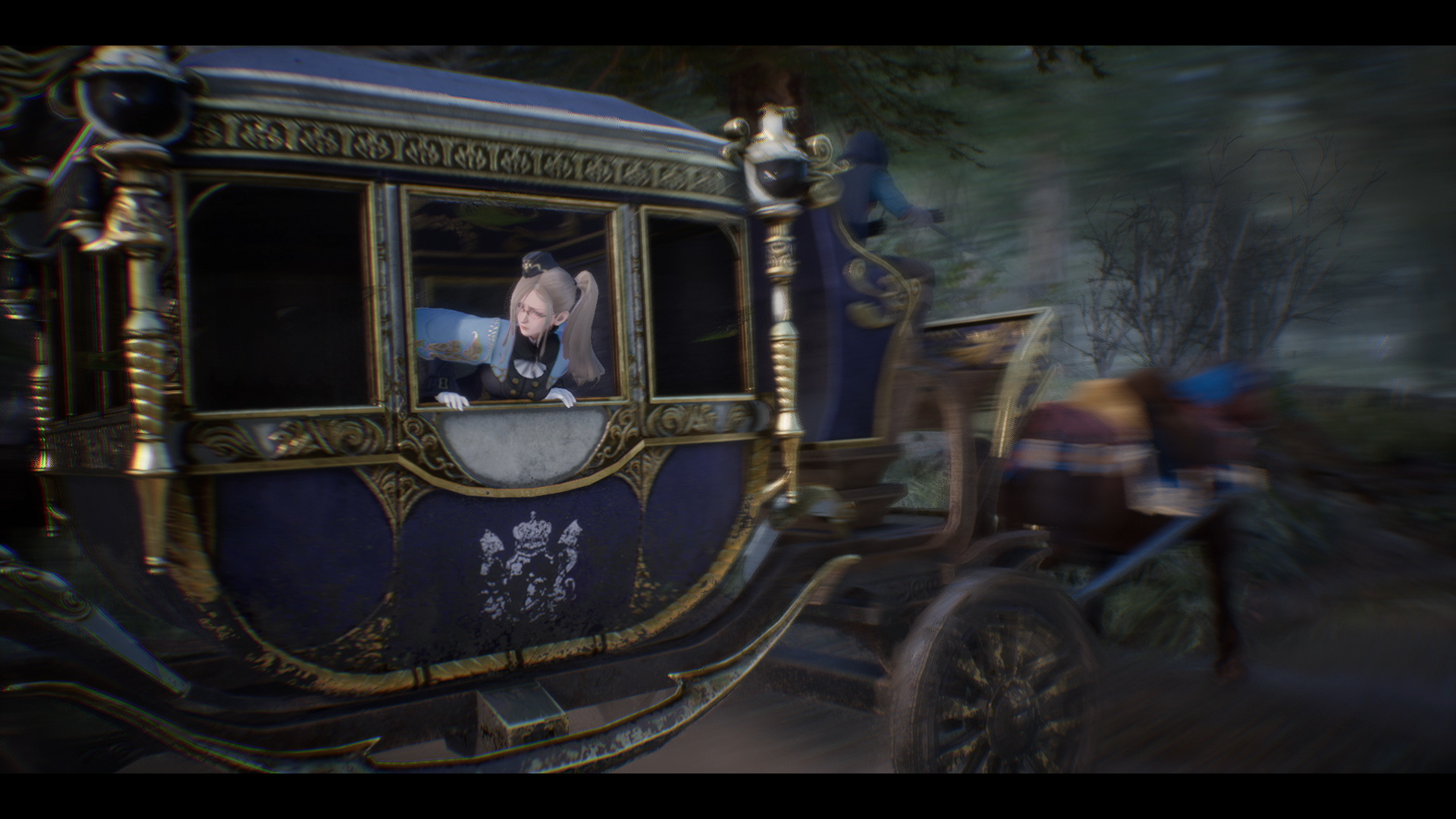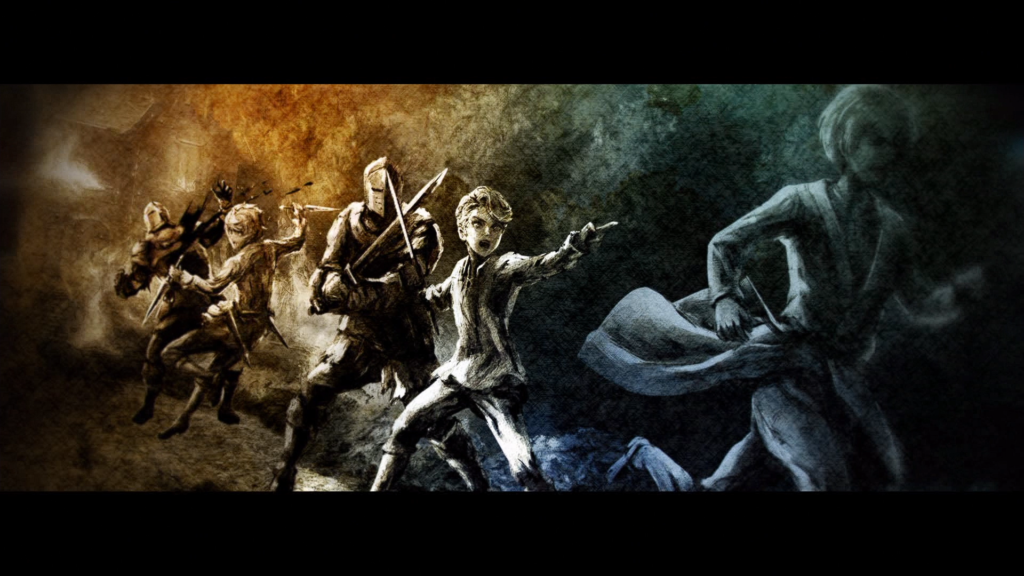I have a confession to make. I hate it when historical documentaries include scenes with actors and/or junior production staff reenacting important moments. It undercuts the two key reasons I’m watching — to learn stuff and to pretend I’m smart whilst doing so. Plus, come on, I mean, they look like cosplayers at the Renaissance Faire. Nothing against that, but again, who are you trying to impress here?
The DioField Chronicle is kind of like a historical documentary peppered with cosplaying Renne Faire volunteers. Also, there’s gameplay. We’ll talk about the gameplay, don’t worry. Gameplay is important in video games; it’s right there in the name. But first, indulge me further on this rant, won’t you? Or just skip ahead, but I promise, this is relevant. I think.
There is a captivating world here. You can read about it in the library. Characters discuss it, occasionally at length. Seriously, it’s a rock-solid foundation. Good lore. Nothing especially original, perhaps, but it gels, and I had a great time flipping through the progressively larger in-game codex.

Troublingly, the majority of the time when the cast gets together to analyze the increasingly complicated political situation and determine the best course of action, I feel like I’m sitting there, you know, chomping on one of those massive turkey drumsticks (I got it for free because I threw axes at a medieval dartboard with moderately impressive results), nodding along like the rest of the audience. There’s precious little urgency in any of it, and I can’t help but think I’m missing a piece of the plot. The voice acting, while solid, is seldom lively enough to stop me from focusing on my poultry.
Brilliant moments help to punctuate the bland narrative. Every time they happened, I hoped it was the start of a trend. Instead, the next couple of hours were droll all over again. There’s a neat wrinkle toward the end. I think everyone who plays The DioField Chronicle will want to talk about it. So, there’s that.
Many of the potentially more emotional moments that ought to have hit like a truck — er, a wagon? — are illustrations rather than cutscenes. Don’t get me wrong, they’re gorgeous, but in a better world, presumably, a world in which the good folks at developer Lancarse had more money, they would have happened via in-game graphics. And I wouldn’t feel as much like I’m being told this story, rather than seeing it with my own eyes.
On the other hand, there’s the real reason to play this game, which is its relatively solid tactical battle system.

Combat occurs in real-time, though with the ability to pause at any point, which I’m grateful for because I never quite got the hang of using my DualSense controller to move my units around without it feeling cumbersome. I’m not holding that against the game, though. I think it’s a me problem. But it wasn’t much of an issue, anyway, since I could just click pause every five seconds like an anxious and fearful player.
Not that I had all that much to be anxious about, I guess. You see, The DioField Chronicle isn’t a hard game. In fact, I’d wager it’s a bit too easy. What helps tremendously is the inclusion of bonus objectives that reward you for fulfilling certain conditions. Successfully doing so, especially on first runs of a stage, can actually get a touch tricky at times.
Units, units, units. You’ll deploy four of them, but really, you’re deploying eight, because another quartet can be assigned, one by one, to your active (and visible) party. Doing so expands their set of skills, and that’s critical when The DioField Chronicle doesn’t have a ton of them to draw from — but neither do your units. While I would have liked to see more variety, there’s a goodly asterisk attached; nearly every skill feels purposeful and appropriately situational. I seldom stopped to wonder why I was shackled with something lame.

Asterisks also apply to the class system. There are only four primary classes. On paper, that’s a bummer. However, every individual unit adds its own twist, its own identity, so that there’s a meaningful weight behind deciding who to bring to battle (and who to level up accordingly). I often found myself replaying stages just to test out party compositions, which in turn earned me more of the upgrade resources necessary to advance everyone’s multiple sorts of skill trees and build up the cash to equip them all in the shiniest available gear.
Criticism has risen against The DioField Chronicle for failing to shake things up much from the first chapter to the last. Obstacles and objectives that might feel fresh early on do wear out their welcome by the end, and there are too many instances of narrow and linear paths leading from one batch of baddies to the next. I largely echo these complaints, but somehow, it didn’t really bother me in the heat of combat. I suppose that’s the sign of a fun battle system when it can overcome the trappings of its surroundings to still feel engaging.
It’s a crime that a soundtrack scored by the killer combo of Ramin Djawadi and Brandon Campbell only has a handful of standout tracks. Your mileage may vary, though that’s always a weird thing to say in reviews since it more or less applies to everything reviewers type. But still, music appreciation is subjective as heck. I just wasn’t terribly impressed. Perhaps my lofty expectations were my own undoing in this department.

The DioField Chronicle is fun to mess around with. It eschews a wealth of customization options in favor of a slimmer, some might say more streamlined, experience where every tool of the trade has its worth. Its world building eclipses its story, and while protagonist Andrias Rhondarson’s snarky nature and co-star Waltaquin Redditch’s eerie nonchalance make for some memorable conversational bits, I cannot shake the sensation that, narratively, it’s just the crust of what might have been. What could have been.
At least they got real actors on the stage, and maybe I can end this piece as bizarrely as I began it by reiterating how tasty that turkey drumstick truly is. The meat’s the gameplay in Square Enix’s latest strategy role-playing game. The tale’s that cheap beer you’re drinking with it.
Disclaimer: Review code provided by the publisher Square Enix.

Recent Comments